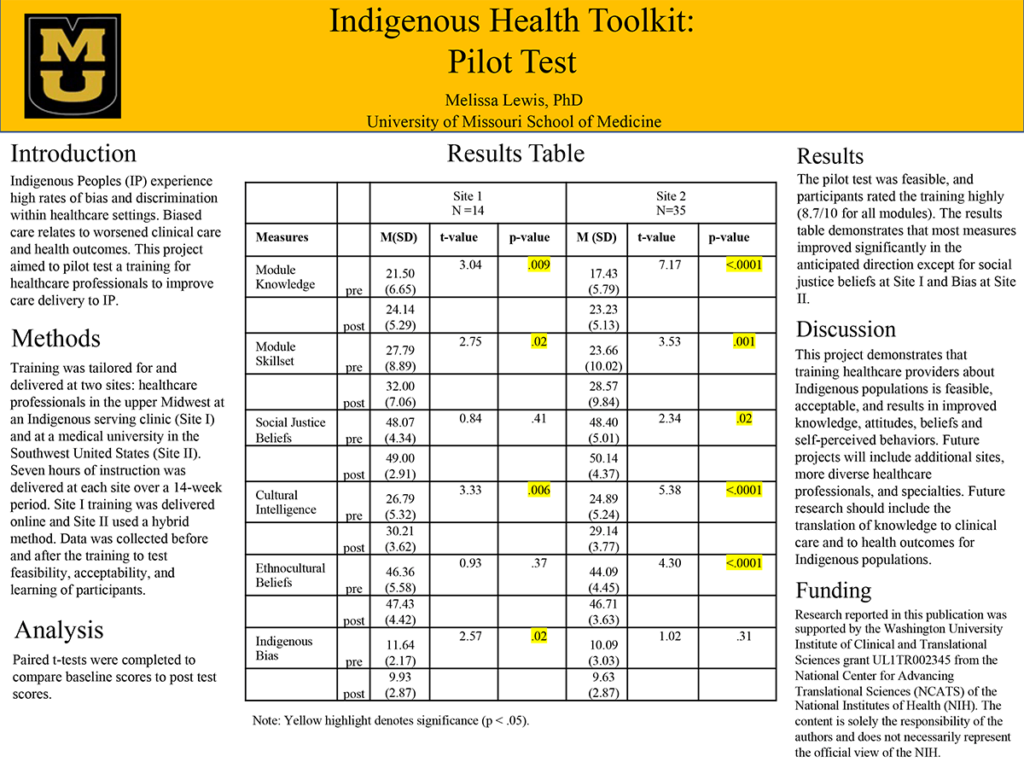Introduction: Compared to all other racial/ethnic groups in the United States (US), Indigenous People (IP) suffer from the largest mental health, substance use, and physical health disparities. Ethnicity and race play a role in the quality of care and treatment patients receive within the medical system. Specifically, discrimination and bias are associated with health disparities for racial and ethnic minorities. Providers working with Indigenous patients engage in unconscious bias, microaggressions, and discriminatory practices. Biased beliefs have consequences for Indigenous patients’ health outcomes.
Methods: A group of experts created an Indigenous Health Toolkit (IHT) to reduce bias and improve care to Indigenous patients. The IHT was piloted at two sites within the United States: The first site is a medical training university in the southwest (hybrid delivery model) and the second site is an Indigenous-serving clinic in the upper Midwest (online). Data collection occurred via online survey pre and post intervention. Students (n=35) and providers (n=14) were asked about their knowledge, skills, beliefs, and bias around Indigenous populations. T-tests were conducted to assess change over time.
Results: Results indicate that students had statistically significant improvements in the areas of social justice beliefs, compassion, culture intelligence, ethnocultural beliefs, Indigenous health knowledge, and Indigenous health skills. Healthcare providers had statistically significant improvements in the areas of culture intelligence, Indigenous health knowledge, and Indigenous health skills.
Impact: The Indigenous Health Toolkit intervention is feasible and acceptable to both students and healthcare providers. In line with previous research, results indicate that providers gain knowledge and skills to provide appropriate care to Indigenous populations. Feedback from participants and providers will be applied to the intervention for improvement and will continue to be tested at additional sites. This intervention could have a positive impact on the care that Indigenous people receive, as well as improved health outcomes.
Organization – University of Missouri – Columbia
Lewis ME
